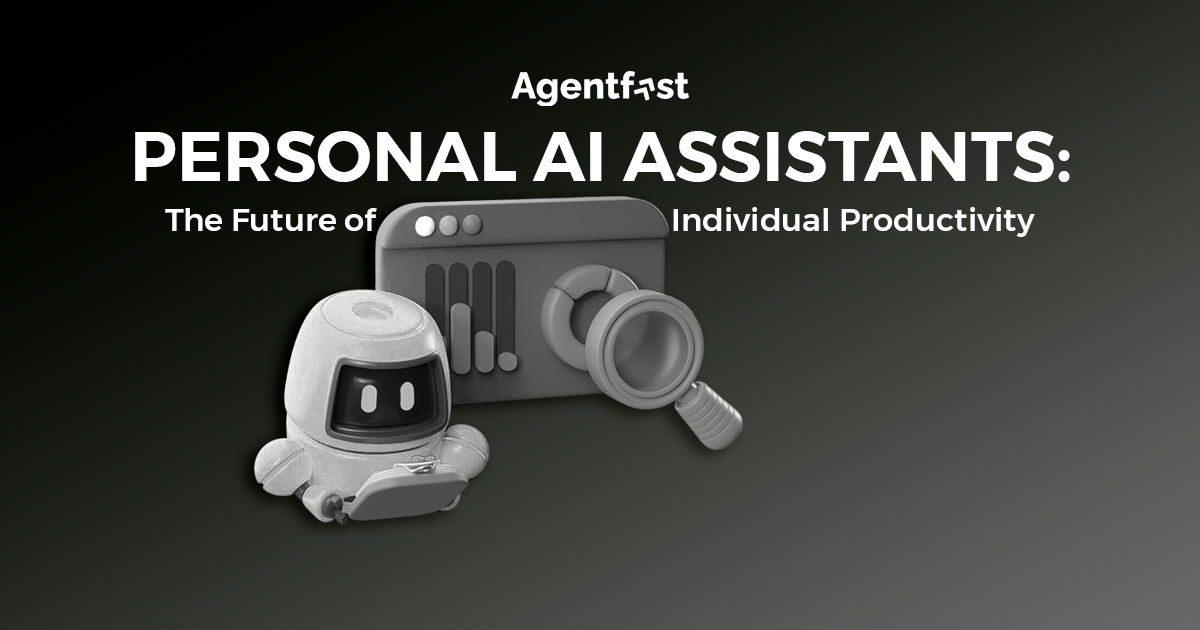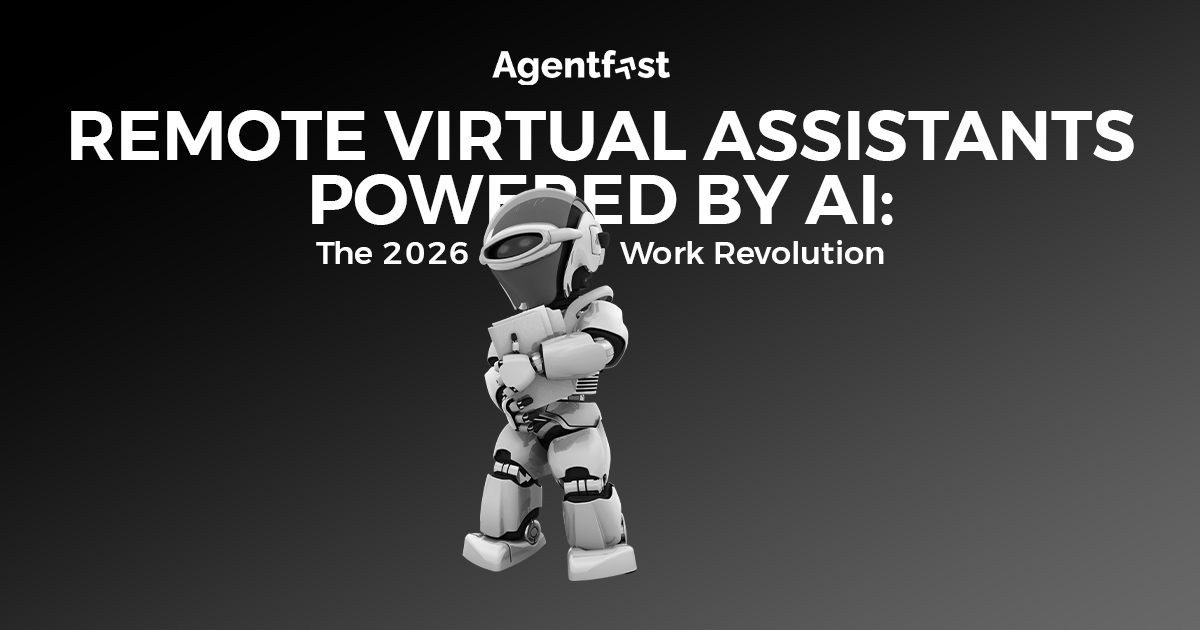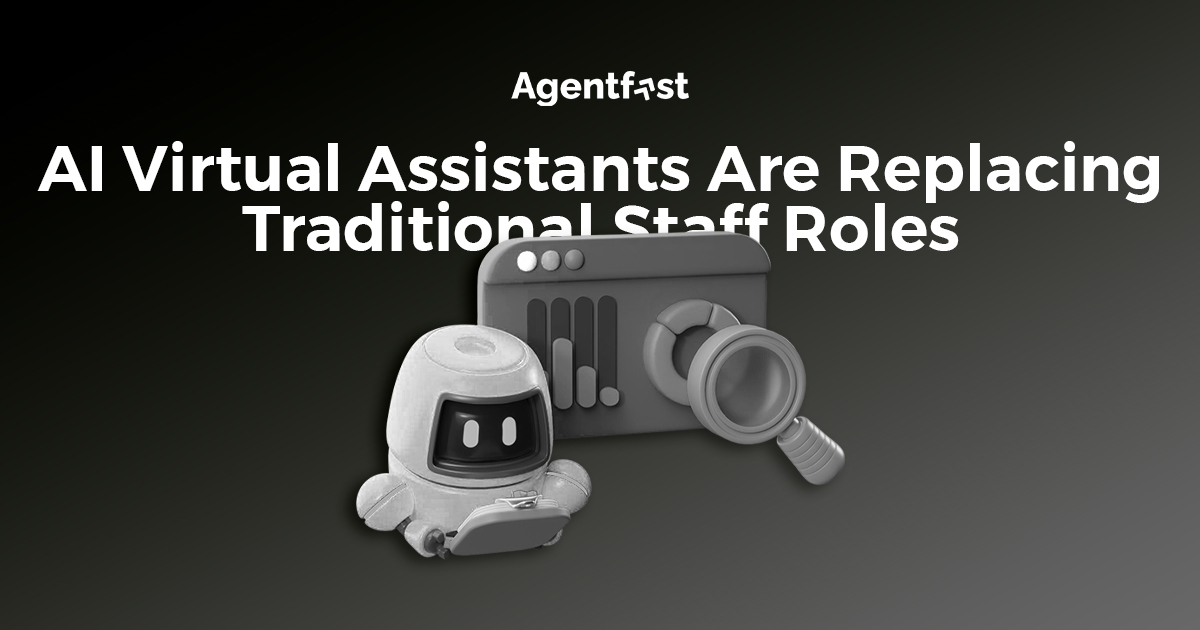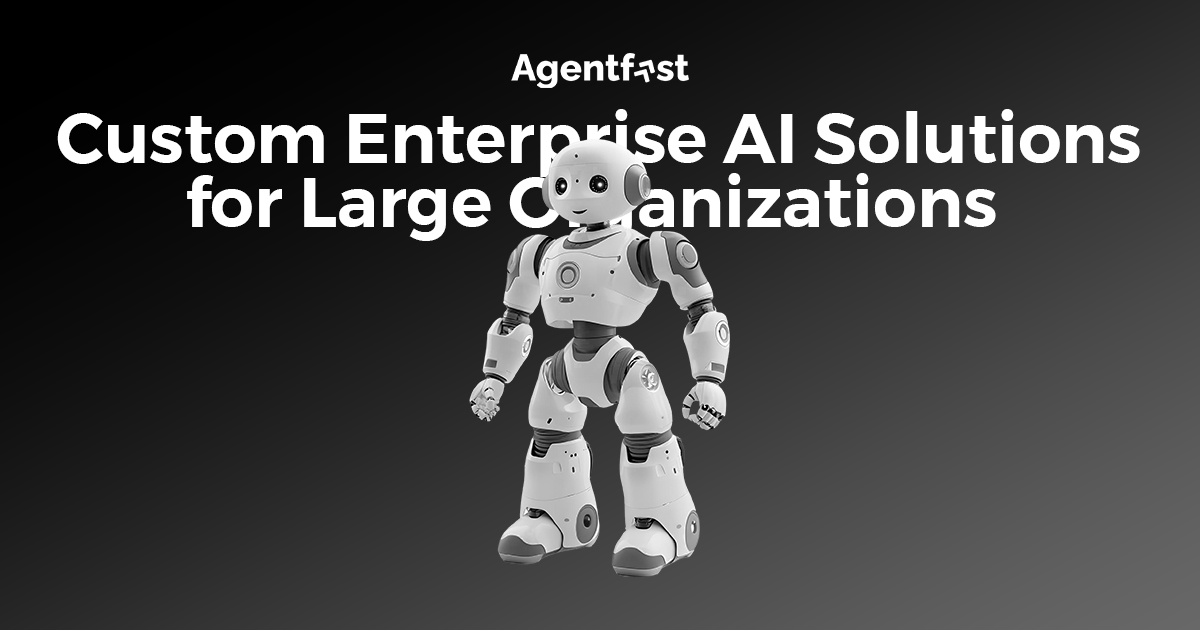You know that moment when work piles up faster than your morning tea cools down? Meetings, calls, emails, follow-ups. It’s endless. That’s when a personal AI assistant becomes your quiet teammate, the one who never forgets, never gets tired, and never asks for a break.
A few years ago, digital assistants were stiff. You’d ask them to schedule something, and they’d say, “Sorry, I didn’t understand.” Now, they don’t just understand, they adapt. They pick up your patterns, your tone, even your mood sometimes. Feels a bit magical, but it’s just smarter tech.
We at AgentFast build these kinds of smart agents for teams who want to eliminate bottlenecks, repetitive work, and slowdowns. We like tools that feel human and think fast.
Smarter Than Before: What a Personal AI Assistant Can Really Do
People imagine a personal AI assistant as a chatbot that talks. But that’s the surface. What’s happening underneath is deep automation. It’s not a robot doing tasks; it’s a system quietly learning how you work and shaping itself around your style.
Think of it like this: the assistant notices when you reply late to certain clients, so next time, it reminds you sooner. It spots your most productive hours and moves your heavy tasks there. It even learns how you write emails, so drafts sound like you, not a machine.
That’s why businesses are now replacing rigid software with virtual assistant software. It connects with your calendar, CRM, messaging apps, and even payment dashboards. One brain linking everything.
Features That Matter in Virtual Assistant Software
Before trying any, check if it can actually keep up with you. Some sound smart, but they can’t adapt. These features make the good ones stand apart:
- Context Learning: Learns your tone, words, and how you greet people.
- Task Prediction: Suggests next steps based on what you usually do.
- Voice & Text Input: Let’s you talk or type, whichever feels natural.
- Data Privacy: Keeps your info safe through encryption.
- Integration Power: Works with apps like Slack, Trello, Gmail, and Zoom.
Sometimes the small things matter most. Once your assistant gets these right, your day starts running smoothly. That’s how we see it anyway.
The Real Benefits of Having a Personal AI Assistant
People talk about the benefits of virtual assistants like they’re fancy add-ons. But honestly, it’s about peace of mind. You wake up, check your phone, and half the routine work’s already done. That’s the quiet power of automation done right.
A personal AI assistant helps reduce that invisible load, reminders, reports, follow-ups, and little things that drain energy. Imagine a day when your assistant sends daily summaries, fixes your schedule, and even warns you before a meeting runs late.
Here’s a simple table breaking down how it helps in day-to-day work:
| Benefit | What It Feels Like in Real Life | Impact |
| Time Saver | Morning starts smoothly | Less rush and forgotten tasks |
| Money Saver | Reduces admin costs | Fewer extra hires for small jobs |
| Focus Booster | Keeps distractions away | More deep work hours |
| Better Communication | Replies on time | Builds trust with clients |
| Calm Workflow | No last-minute chaos | Better mental focus |
Feels strange sometimes, but these assistants actually make your work quieter. Less noise, fewer pings, more clarity.
Virtual Assistant Software: The Nerve Center for Modern Teams
Remote or office, it doesn’t matter anymore. Teams everywhere use virtual assistant software to connect people and tools. It’s like having a central nervous system for your company’s daily flow.
A manager in Mumbai might upload a report, and a designer in Berlin sees it ready in Slack. No messages missed, no confusion. The assistant keeps communication clean.
But beyond updates, the assistant builds rhythm. It automatically schedules meetings, drafts reminders, and tracks who’s waiting for what.
Why Teams Swear by Personal AI Assistants
- Fewer Interruptions: Tasks keep moving while you’re busy elsewhere.
- Smooth Collaboration: Connects different platforms without manual effort.
- 24-Hour Availability: Perfect for cross-time-zone work.
- Better Records: Summaries, notes, and follow-ups stored neatly.
- Quick Decisions: Data presented in seconds, not hours.
It’s like adding one silent worker who doesn’t get tired. And sometimes, that’s all a team needs to work twice as fast.
Virtual Assistant Chatbots: From Small Talk to Smart Action
A few years back, virtual assistant chatbots were basic. They said hi, asked for names, and handed you to a human. Now they can actually handle conversations that matter.
Say you’re running an eCommerce store. A chatbot can answer order queries, send tracking updates, and process returns, all automatically. For business owners, that’s real time saved.
But these chatbots also sync with your personal AI assistant. So, while the chatbot chats with customers, your AI assistant updates your sheet, sends an email to logistics, and logs the record in your CRM. You don’t even touch it.
One of my clients once said, “It feels like my business works while I sleep.” And they weren’t exaggerating. That’s the kind of support good automation gives.
Remote Virtual Assistants: The New Digital Colleagues
We’ve all worked with remote staff. The difference now is that remote virtual assistants powered by AI can do more than clerical work. They manage workflows, handle onboarding, check analytics, and even brief you before a client call.
You just wake up, and there’s a summary waiting, calls, pending files, and upcoming deadlines. You skim, approve, and move on. That’s how modern professionals stay on top of things without burning out.
These assistants also sync across devices. You can leave a voice note from your phone, and the AI converts it into a task, assigns it, and pings the team. Smooth, right?
A small marketing team I worked with used such assistants to handle reporting. They saved around 10 hours a week, not exaggerating. That’s time spent on strategy instead of spreadsheets.
The Future of Personal AI Assistants in 2025 and Beyond
Now comes the interesting part. The next generation of personal AI assistants won’t just respond, they’ll anticipate. You might hear your phone say, “Hey, your project report’s missing one graph. Want me to create it?”
It’s not fiction. AI now merges with IoT. The assistant can check meeting room lights, turn off your devices after hours, and even start your car reminders for the next client visit. Feels unreal, but it’s here.
The benefits of virtual assistants go beyond work now. They help people track habits, manage bills, and even remind you to stretch between calls, a quiet companion for the 9-to-9 generation.
For teams, this means cleaner handoffs, fewer follow-ups, and less dependency on manual updates. Some call it the second brain. We just call it practical.
Final Thoughts
A personal AI assistant is not a luxury anymore; it’s the new way of managing work without chaos. It gives you time to think, breathe, and actually enjoy what you do.
If your team still struggles with repetitive work or messy coordination, maybe it’s time to switch gears. We at AgentFast help you simplify workflows using AI agents that learn fast, talk naturally, and just get things done.
You can reach out anytime. We’ll help you build your assistant the way you actually need it, not the way software dictates. That’s how we see it anyway.
Frequently Asked Questions
What exactly is a personal AI assistant?
It’s a digital helper that automates your daily jobs like emails, reminders, or scheduling. It learns your habits and slowly adapts to your working style.
How is a virtual assistant chatbot different from software?
A chatbot talks with users through messages, while virtual assistant software handles larger processes, like integrating apps, managing calendars, and sending reports.
Can remote virtual assistants replace staff?
No, they don’t replace people. They take care of repetitive tasks so humans can focus on decisions and ideas. That’s how the best balance works.
Are there risks in using personal AI assistants?
Only if you skip security, always pick tools with encrypted storage and limited access. The good ones take privacy seriously.
What are the key benefits of virtual assistant software?
Faster communication, fewer errors, time saved, better organization, and less stress overall. You feel more in control every day.






